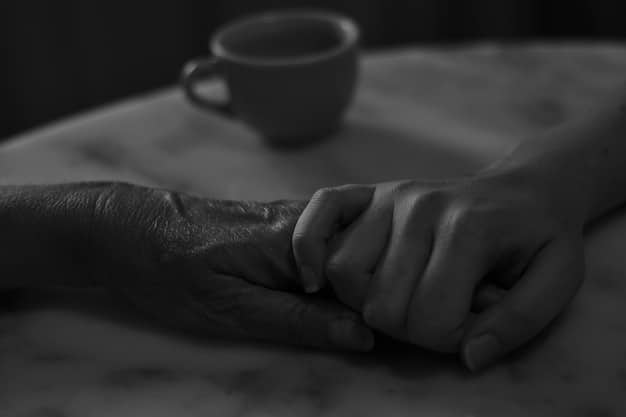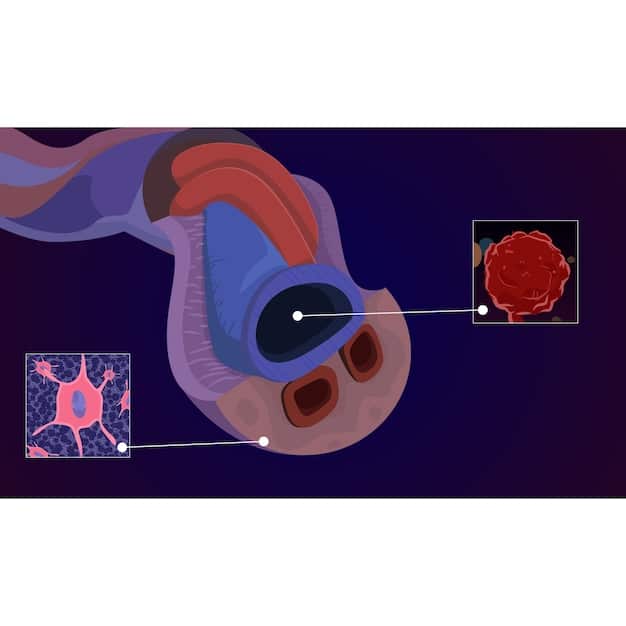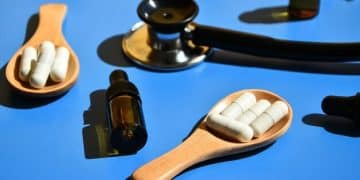Sex After Prostate Cancer: Regaining Intimacy and Sexual Health

Sex after prostate cancer is possible, though treatments often lead to sexual side effects; understanding these changes and exploring various strategies and treatments can help regain intimacy and sexual function.
Undergoing prostate cancer treatment can bring about significant changes in a man’s life, not least in his sexual health. Understanding what to expect and how to navigate these changes is crucial for regaining intimacy and overall well-being. This article delves into the realities of sex after prostate cancer, offering insights and strategies to help men and their partners navigate this challenging terrain.
Understanding the Impact of Prostate Cancer Treatment on Sexual Function
Prostate cancer treatments, while life-saving, often have side effects that can impact sexual function. These side effects vary depending on the type of treatment received, but understanding them is the first step toward managing them effectively.
Common Sexual Side Effects
Several sexual side effects are frequently observed following prostate cancer treatment. These can affect different aspects of sexual function, including desire, erection, and ejaculation.
- Erectile Dysfunction (ED): Difficulty achieving or maintaining an erection is a common side effect due to nerve damage during surgery or radiation.
- Decreased Libido: Hormone therapies can lower testosterone levels, resulting in reduced sexual desire.
- Ejaculation Problems: Changes in ejaculation, such as dry orgasm (no semen) or retrograde ejaculation (semen flows into the bladder), are also possible.

Why These Side Effects Occur
These side effects occur because prostate cancer treatments can affect the nerves, blood vessels, and hormones involved in sexual function. Surgery, radiation, and hormone therapy each have distinct mechanisms that can lead to these changes.
Nerve-sparing surgery techniques aim to minimize nerve damage during prostate removal, potentially reducing the risk of ED. However, some degree of nerve damage is still possible. Radiation therapy can also damage nerves and blood vessels over time, affecting erectile function. Hormone therapy, by lowering testosterone, directly impacts libido and can contribute to ED.
Understanding the potential impact of each treatment option allows individuals to have informed discussions with their healthcare providers about managing and mitigating these side effects. Open communication is key to finding the best approach for maintaining sexual health and intimacy.
Medical Treatments for Sexual Dysfunction After Prostate Cancer
Fortunately, several medical treatments are available to address sexual dysfunction following prostate cancer treatment. These options can help men regain erectile function, increase libido, and improve overall sexual satisfaction.
Medications
Oral medications are often the first line of treatment for erectile dysfunction. These drugs work by increasing blood flow to the penis, facilitating an erection.
- PDE5 Inhibitors: Medications like sildenafil (Viagra), tadalafil (Cialis), and vardenafil (Levitra) are commonly prescribed to treat ED. They require sexual stimulation to be effective.
- Alprostadil: This medication can be injected directly into the penis or inserted as a suppository. It works by relaxing the blood vessels in the penis, promoting an erection.
Other Medical Options
In addition to medications, other medical interventions can help men regain sexual function.
Vacuum erection devices (VEDs) are external devices that create a vacuum around the penis, drawing blood into the area and inducing an erection. Penile implants are surgically implanted devices that can provide a rigid erection on demand. These options are typically considered when medications and VEDs are ineffective.
Lifestyle Adjustments to Improve Sexual Health
Lifestyle adjustments can also play a significant role in improving sexual health after prostate cancer treatment. Adopting healthy habits can boost overall well-being and enhance sexual function.
Diet and Exercise
A healthy diet and regular exercise can significantly improve sexual health. Maintaining a healthy weight, controlling blood pressure, and managing cholesterol levels are crucial for optimal sexual function.
A balanced diet rich in fruits, vegetables, and whole grains provides essential nutrients for overall health. Regular exercise, including cardiovascular activities and strength training, improves blood flow and boosts hormone levels. These lifestyle changes can enhance energy levels and improve sexual desire and performance.
Stress Management
Stress and anxiety can negatively impact sexual function. Implementing stress management techniques can help improve libido and erectile function.

Techniques such as meditation, mindfulness, and deep breathing exercises can reduce stress levels and promote relaxation. Engaging in enjoyable activities, such as hobbies and spending time with loved ones, can also help manage stress and improve overall mood. Addressing psychological factors can have a positive impact on sexual health.
Communicating with Your Partner
Open and honest communication with your partner is essential for navigating sexual challenges after prostate cancer. Talking about your concerns, fears, and desires can strengthen your relationship and facilitate intimacy.
Why Communication is Key
Discussing sexual changes with your partner can help both of you understand the physical and emotional impact of treatment. This open dialogue allows you to explore new ways of being intimate and find solutions together.
Sharing your experiences and feelings can reduce anxiety and create a supportive environment. It also allows your partner to express their needs and concerns, fostering a deeper connection. Effective communication is vital for maintaining intimacy and navigating the changes in your sexual relationship.
Tips for Effective Communication
Creating a safe and supportive space for conversation is crucial. Here are some tips for effective communication:
- Choose the Right Time: Find a quiet and private moment when you can talk without distractions.
- Be Honest and Open: Share your feelings and concerns honestly, and encourage your partner to do the same.
- Listen Actively: Pay attention to what your partner is saying and validate their feelings.
- Be Patient and Understanding: Recognize that navigating these changes takes time and patience.
Open communication can lead to greater understanding and stronger emotional bonds, helping you and your partner adjust to the changes in your sexual life.
Exploring Alternative Forms of Intimacy
After prostate cancer treatment, focusing on alternative forms of intimacy can help maintain a strong connection with your partner. These methods can enhance emotional and physical closeness without relying solely on sexual intercourse.
Non-Sexual Activities
Engaging in non-sexual activities can strengthen your bond and create opportunities for intimacy. Simple activities such as holding hands, cuddling, and kissing can foster feelings of closeness and affection.
Sharing experiences, such as going for walks, watching movies, or cooking together, can also enhance emotional intimacy. These activities provide opportunities for connection and create shared memories, strengthening your relationship.
Focusing on Sensuality
Exploring sensuality can be a fulfilling way to maintain intimacy. This involves focusing on and enjoying physical sensations beyond sexual intercourse.
- Massage: Giving or receiving a massage can be a relaxing and intimate experience.
- Sensual Touch: Exploring different types of touch can heighten pleasure and create a deeper connection.
- Creating an Intimate Atmosphere: Setting the mood with candles, music, and soft lighting can enhance sensuality.
Seeking Professional Help
Seeking professional help can provide valuable support and guidance in navigating sexual challenges after prostate cancer treatment. Therapists, counselors, and sexologists can offer strategies and interventions to improve sexual function and intimacy.
Individual or couples therapy can help address emotional and psychological factors that may be impacting sexual health. Therapists can provide tools and techniques for managing anxiety, improving communication, and enhancing intimacy. Sexologists specialize in sexual health and can offer targeted interventions for specific sexual dysfunctions.
Don’t hesitate to reach out to healthcare professionals who can provide personalized support and guidance. Seeking professional help is a proactive step toward improving your sexual well-being and overall quality of life.
| Key Point | Brief Description |
|---|---|
| 😫 Sexual Side Effects | Treatments often cause ED, decreased libido, and ejaculation problems. |
| 💊 Medical Treatments | Medications like PDE5 inhibitors, injections, and penile implants can help. |
| 💪 Lifestyle Changes | Healthy diet, exercise, and stress management improve sexual health. |
| 🗣️ Communication | Open dialogue with your partner strengthens intimacy and understanding. |
Frequently Asked Questions
▼
Yes, erectile dysfunction can often be effectively treated using medications like PDE5 inhibitors, vacuum devices, injections, or penile implants. Consult a healthcare professional to determine the best option for you.
▼
Discuss testosterone replacement therapy with your doctor, if appropriate. Lifestyle changes like exercise, stress reduction, and a healthy diet can also help boost libido.
▼
Yes, many men can have a fulfilling sex life after prostate cancer. It may involve adjusting expectations, exploring alternative forms of intimacy, and seeking appropriate medical or psychological support.
▼
Retrograde ejaculation is when semen flows into the bladder instead of out of the penis during orgasm. While not harmful, it can reduce fertility and may alter the sensation of orgasm.
▼
Your healthcare provider can often recommend local support groups. Online forums and organizations like the American Cancer Society also offer resources and communities for men facing similar challenges.
Conclusion
Navigating sex after prostate cancer requires understanding, patience, and proactive management. By exploring medical treatments, adopting healthy lifestyle habits, communicating openly with your partner, and seeking professional help when needed, you can regain intimacy and improve your sexual well-being.





